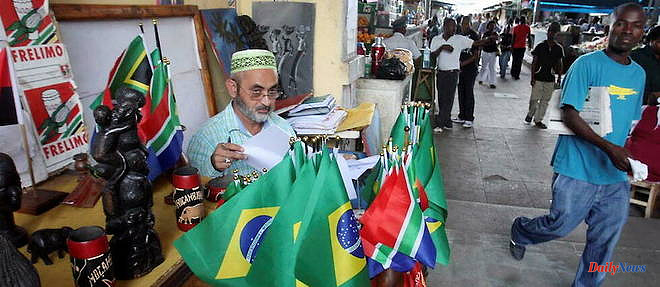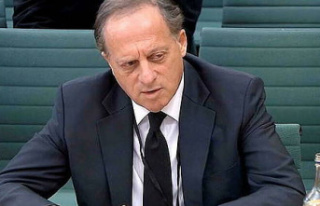After setting the historical backdrop for the relationship between Africa and Brazil, giving the floor as much to a woman of culture as to a Brazilian elected official who spoke about their attachment to the continent, make way for an African voice, that of 'a Sahelian now administrator of Sesame, an agency whose objective is basically to build bridges between people as well as between business spaces. The floor is with Adama Diarra.
Le Point Afrique: Where does your passion for Brazil come from?
Adama Diarra: It came to me during a videoconference that I organized between the Chamber of Commerce and Industry of the Sikasso region and the Brazilian Embassy in Mali. I was able to appreciate on this occasion the enormous potential of Brazil in the agro-food sector in particular.
I thought that his exceptional know-how in the conservation and processing of tropical products should arouse the interest of Africa. So I took the initiative to lead an economic and trade mission there with 12 Malian economic operators.
You have since become a regular in Brazil…
Yes, several missions followed, the last one in September 2022. Beyond business, I developed a real passion for this country close to Africa both in terms of its climate and its population. I am currently preparing our next trade mission to Brazil to visit the largest agribusiness fair in this country. This is the Agrishow, which takes place from May 1 to 5 this year.
How do you explain that, despite the proximity – geographical, human and historical – Africa and Brazil do not have greater cultural exchanges than those that currently exist?
In my opinion, this situation is mainly due to the language barrier. Africa has, it should be remembered, only four or five Portuguese-speaking countries. Then, it seems to me that there are very few initiatives for rapprochement. This is the fault of politicians but perhaps also of historians, both Brazilian and African. These should talk to each other more and teach us about the painful past that binds us. The third reason, it seems to me, relates to the lack of air and sea communication links. That said, a simple political will could be enough to revive and energize relations between Brazil and Africa on several grounds.
It's time for the diversification of partners, when a Brazil-Africa summit in the wake of the already traditional Commonwealth forums, but also of the Africa-France, China-Africa, Russia-Africa, India-Africa type.
I am firmly convinced that a Brazil-Africa summit will take place before the end of President Lula's mandate. The explanation lies in the latter's interest in Africa and the enthusiastic reception given by African countries to President Lula's return to power. The opening of many Brazilian diplomatic representations in Africa during the first term of President Luis Inacio Lula da Silva is a sign that gives hope for the future.
During your various travels, have you felt in your Brazilian partners a real interest in Africa? Also, what does Brazil mean to Malian decision makers?
To answer your question about Brazilians' interest in Africa, I would say that I really felt it there. This leads me to point out that an Ecowas-Brazil (ECOWAS-Brazil) chamber of commerce has been in place for sixteen years. It is a private non-profit association that is chaired by an Afro-Brazilian woman. It works to open the respective markets to companies and institutions interested in carrying out bilaterals between Brazil and Africa. It is also partner structures with which we work in Brazil. Another illustrative element of Brazilian interest in Africa is the organization of Brazil's African Fashion Week in May this year. This cultural event responds to a strong demand from Afro-Brazilians who are working to find an identity and a way of life in synergy with their ancestry. Moreover, many Brazilians we met during our various missions have remained in contact with us, seeking the slightest opportunity to come to Africa or establish partnership relations.
For the second part of your question, I will say that Brazil means a lot to Malian decision makers. I want proof of this in the quality of the cooperation programs between Mali and Brazil in the fields of agriculture, livestock, research in cotton production, etc. Throughout the year, the government regularly receives cooperation missions. The Prime Minister's recent trip to Brazil to participate in the inauguration of President Luiz Inacio Lula da Silva is both an illustration of this. It confirms the great interest of Malian decision-makers for Brazil, especially since Mali was the only country in the French-speaking world to have been represented at this ceremony with a high-level delegation.
*1986, Ex aequo Literary Grand Prix of Black Africa for "The Scales of the Sky"; 2008, Renaudot Prize for "The King of Kahel"; 2012, Erckmann-Chatrian Prize and Grand Prix du roman métis for "Le Terroriste noir"; 2013, Palatine Grand Prize and Ahmadou-Kourouma Prize for "The Black Terrorist"; 2017, Grand Prix de la francophonie for all of his work. Tierno Monénembo's latest publication has been published by Editions du Seuil. Her title: "Indigo Saharan"












